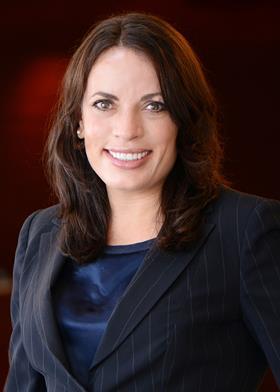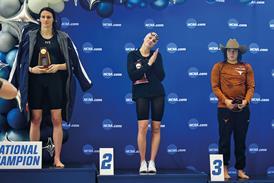
With the legal innovation age upon us, the concept of ‘lawyering’ is being reframed. Clients are rightfully demanding that their law firms recognise what work is truly bespoke, that they understand how to efficiently perform and scale that work which can be routinised, and that they have the combination of technology and process expertise to help them operationalise their legal advice within their law departments and companies. The stakes for law firms are high as the profession becomes increasingly encroached. At the inaugural CLOC EMEA Institute in London last month, the renowned Richard Susskind identified a litany of new professions solving problems that we used to think could only be solved by lawyers. Susskind’s identified professions included fields such as legal data scientists, legal technologists, legal process analysts, legal project managers, and so on. These fields reflect the skillsets needed to effectively deliver legal services and the professionals with whom ‘traditional lawyers’ increasingly must collaborate if they wish to stay relevant.
As the concept of legal service delivery is undergoing this transformation, law schools in the United States are augmenting their curriculum. Dan Linna helped found the Center for Legal Services Innovation (‘LegalRnD’) at Michigan State University, which covers the gamut from legal tech and operations to design thinking to innovative access to justice models. Linna has expanded that teaching to the University of Michigan Law School, and his course this semester was wait-listed. Silicon Flatirons, through the University of Colorado law school, annually offers a Tech Lawyer Accelerator ‘boot camp’ in which law students are immersed in a curriculum combining the technology, process, and legal operations. The University of Indiana Law School offers a similar model, and Bill Henderson of Indiana is a nationally recognised legal and legal-education innovator. Dan Katz at Chicago Kent is a thought-leader in legal technology and analytics. And Gabe Tenninbaum, the Director of Sufffolk Law’s Institute on Law Practice Technology and Innovation teaches his students, among other things, software coding, document automation, and expert systems software. This list is non-exhaustive – in November 2017, Legal RnD published a Law School Innovation Index aimed to measure the extent to which the 200+ US law schools are teaching and driving legal innovation.
Some law schools are not only teaching legal innovation, but also are creating spaces to ideate what comes next. Stanford Law’s CodeX is focused on researching and developing technology-enabled legal analysis, and in addition to teaching legal technology, Artificial Intelligence, and other technology-based legal courses, it holds an annual Future Law conference that is a prestigious gathering of legal innovation thought-leaders. Duke Law School now has a Tech Lab that serves as an incubator for legal technology that brings together investors, consumers and technologists to ideate and develop legal technology.
But there are questions about whether traditional law school models are enough. At a recent and enlivening design thinking session spearheaded by Linna, led by Stanford’s Margaret Hagen focused on ’building a better lawyer,’ the conversation circled back on itself to law schools, and whether the traditional legal education was enough to meet the needs of the new legal frontier. Anticipating that need and demand, legal innovation educators announced earlier this month the formation of the Institute for the Future of Law Practice (IFLP), which will create a new curriculum for students at Northwestern and Colorado Law schools to teach their law students new approaches to legal service delivery by leveraging data, process, project management, and technology. The IFLP anticipates rolling out that curriculum to other law schools nationwide.
Training lawyers to serve clients the way they want to be served does not end with law school, and some law firms are recognising the importance of re-thinking how associates should be trained. Bryan Cave’s Business Academy is an example: the academy teaches our associates to understand how legal advice, process, and technology all come together to deliver relevant, integrated legal services to our clients. Mark Chandler, the general counsel of Cisco, will kick off our next Academy, beginning in May, and will speak from the client’s perspective on the importance of this new kind of legal training. His key note will be followed by an associate hackathon, where associate teams will develop and present a new idea for using technology to deliver legal services.
As Susskind identified, this new frontier of legal service delivery is not just linearly impacting legal education and associate development; it also is changing the way that law students are preparing for their futures and perceiving the possibilities for their career paths. When we asked the 33 students in Professor Linna’s class why they decided to take a legal technology and innovation course, their responses boiled down to three major themes. On the most conservative end of the spectrum, the students anticipated that they would need legal tech skills now more than ever once they entered law firm practice. And they also understood that technology proliferation (and what I would characterise as a more innate understanding of Moore’s law) necessarily means that the nature of the practice of law will look vastly different ten years from now than it does today. But interestingly, they also cited their interest in keeping their options open in terms of how they would use their legal degree, and, potentially pivot into one of the many new hybrid legal tech careers that will increasingly be available to them.
Kathryn DeBord, chief innovation officer at Bryan Cave LLP

















![David Lester (senior partner at Blythe Liggins), Darryl Barnes, Jagdeep Sandher (head of dispute resolution at Blythe Liggins)[4]](https://d1d8vslyhr7rdg.cloudfront.net/Pictures/274x183/4/2/8/116428_davidlesterseniorpartneratblytheligginsdarrylbarnesjagdeepsandherheadofdisputeresolutionatblytheliggins4_981603_crop.jpg)






No comments yet